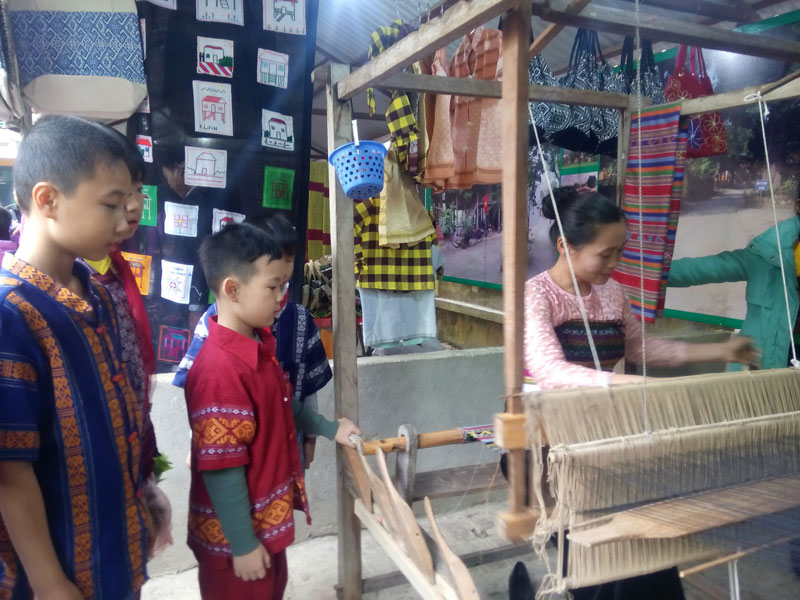



Pupils of Mai Chau Town Primary School had a
chance to experience community tourism, which contributes to educating children
to appreciate the value of ethnic cultural identity.
In this year, there are 303 Thai-ethnic
students, 198 Kinh (Viet)-ethnic students, 18 Mong-ethnic students, 15
Muong-ethnic students and others such as Dao and Tay ones.
Based on that, the school encourages children
to wear their ethnic traditional costumes. This does not only help them
remember the features of how to sew, how to embroider each pattern and motif,
and understand the meaning that the older generation impart to each set of
costumes, but also create a colorful picture of ethnic communities in the highland
districts (Mai Chau).
Bao Ngoc Ha, a student of class 5A1 in Mai
Chau Town Primary School, told: "I’m a Thai-ethnic student. At the beginning of
year, my mother sewed a Thai girl ethnic costume. When I was wearing to attend
the class, I felt very proud of my ethnicity. Moreover, after the studying time
in classes, I usually help my mother embroider a lot of patterns in order to
sew on pictures, handbags, scarfs and dressed which are advertised for
tourists.
Not only encouraging to wear ethnic costumes
as uniforms in the school, but the school also organizes folk songs and
traditional games at the time of outdoor activities or in the break time in a
purpose of that students can relax after stressful days of classes. These
activities are favorited by many students and teachers, and the atmosphere in
school also begins exciting and bustling. Therefore, every day for students to
go to school is a happy day and the quality of study is also improved
significantly.
Ms. Thanh Nhan Mai, a teacher managing youth
union as well as a trade union chairwoman of school, said that perceiving and
educating about ethnic traditions for the young generations are necessary to
conserve and maintain cultural identities of ethnic groups in the future.
Furthermore, students can discovery more features which are familiar to daily
life, therefore, every edge of classes or traditional rooms of school are
decorated carefully by students and teachers. They also collect many stuffs to
make geometric models for everyone to visit, learn and help them more love and
be proud of local cultures.
At the end of May, the Hoa Binh Provincial Ethnic Arts Troupe organized a series of performances for residents in Region 2 and Region 3 communes across the province. Bringing art to ethnic communities in remote, isolated, and especially disadvantaged areas has become a meaningful activity. These are not merely artistic performances but also journeys to disseminate cultural values, enrich spiritual life, and contribute to preserving the cultural identity of ethnic minorities.